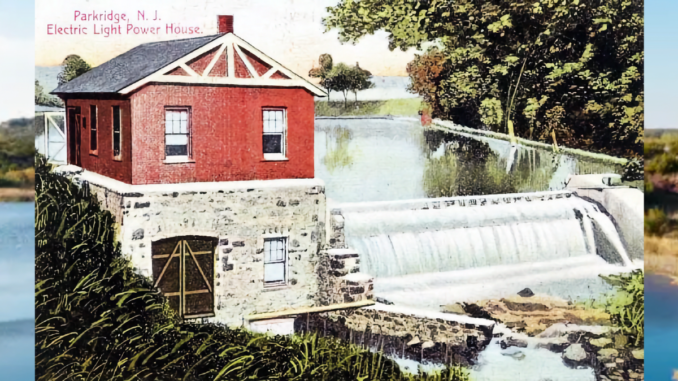
PARK RIDGE—Residents will sound off on Nov. 7 as to whether the borough should spend slightly over $15 million, including bonding costs over a 20-year period, to dredge Mill Pond and restore water quality and improve water retention and recreational value.
The Borough Council agreed, 5-0, on a resolution Aug. 8 to place the non-binding referendum on this November’s General Election ballot. The referendum question is designed to canvass the opinion of Park Ridge voters on whether or not they wish the borough to incur the cost of the potential dredging of Mill Pond (Electric Lake).
“The results of the referendum will be one factor considered by the Park Ridge mayor and council as future dredging options are evaluated and or implemented. Any such dredging project, if implemented, may be completed in stages,” reads the referendum question’s explanatory statement.
The resolution asks, “Shall the Borough of Park Ridge spend a minimum of $15,500,000, incur $10,500,000 in bond debt, and raise taxes at least 5% to facilitate the dredging of Mill Pond (Electric Lake)?”
The resolution notes the borough engineer estimates that the minimum dredging cost for Mill Pond would be “at least $12 million.” (See “Borough seeks $12M aid on Mill Pond dredge,” June 17, 2023, Michael Olohan, Pascack Press.)
However, a state grant recently received could reduce that by $1,500,000, officials said. That grant was to be used for a local infrastructure project.
The borough auditor estimated the borough would need to incur at least $10,500,000 of debt and raise property taxes by at least 4.91% to undertake the dredging project, officials noted.
Moreover, the auditor estimated a cost of at least $15,452,000 over a 20-year-bond repayment period.
“It makes little sense to spend our $1.5 million in grant money in initiating the project if we did not know our residents were actually willing to spend the additional taxpayer money required to complete such a dredging project,” said Council President William Fenwick.
A couple residents wondered what would happen with the $1.5 million in state grant money should registered voters oppose the dredging project. Officials said that could be used for another local capital improvement project but that not doing something about Mill Pond was not the answer.
Several said the issue had been delayed too long and would only increase in cost the more it was delayed.
Officials said the last time the pond was dredged was in 1979.
Mayor Keith Misciagna said that Republican state Sen. Holly Schepisi (R-River Vale) was able to secure the infrastructure grant. He said working with other mayors and towns in the 10-town Pascack Valley Mayors Association has helped to secure some funding for dredging and that most towns face similar challenges in raising funds to address flooding and stream bank erosion concerns.
Misciagna said if residents don’t want to move forward with dredging, in the future they may be forced to spend large sums should further problems develop. “Everything we’re going to do is going to cost money. … I’d rather not put that burden on the taxpayer.”
He noted there are no low-cost options that involve dredging the pond and said that the dredging, and drying of the dredged material, plus testing, and ultimate disposal of the sediment is a “very complicated issue” that should be addressed on a regional basis. He said he has been trying to work with county, state and federal officials to get funds for the dredging project.
